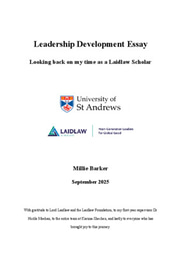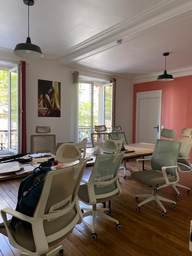LiA Week 5: Reflecting on your 'why'

My past weeks at Karuna-Shechen have been filled with truly inspiring conversations with the international team. I have been privileged to gain insight into the multitude of roles and the unique operations of Karuna. In these conversations the team has shared their commitment to act for change and their journey to fulfilling the position they are in today. More deeply though, I have learnt what hope means to each of these people and how they see this hope reflected in the work they do each day.
These reflective conversations have taught me the importance of knowing your ‘why’ as a leader. If you are aware of your purpose and intent, you have the capacity to act in alignment with your values and accountably execute your tasks. You have a self-awareness that enables you to act with integrity and intention.
Beyond this, the Leadership-in-Action project asks us as undergraduates who are moving into the professional world to grow into uncertainty and learn our why. To be in a different, and at times challenging, environment for a long period undertaking new work asks for commitment. It takes determination and resilience day in and day out to make an impact, add a value, and try to make this world a better place. In order to embrace this uncertainty and keep sight of your destination no matter the obstacles, you must return to the internal reason that keeps you putting one foot in front of the other. The capacity and desire that enables you to get up, and try again, even when it seems dark and unknown.
For me this learning was tied strongly to my research on Hope – the why that drives each of us to keep putting one-foot forwards, turning towards the light – choosing what we act for.





Please sign in
If you are a registered user on Laidlaw Scholars Network, please sign in